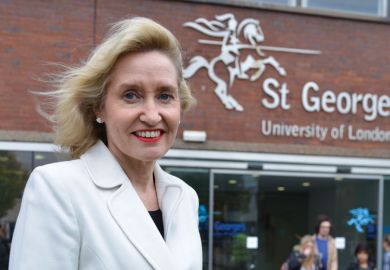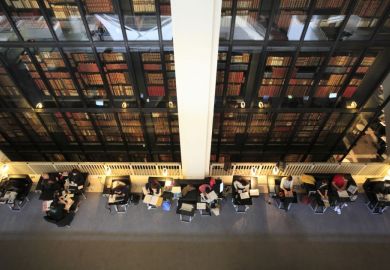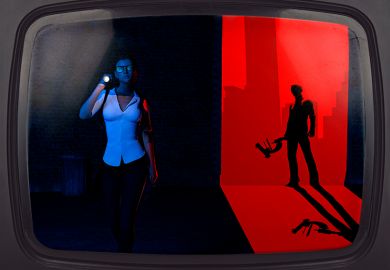Charles Foster is a senior research associate at the University of Oxford and a qualified barrister and veterinarian. He is also the author of several books on natural history, law and travel. For his recent publication, Being a Beast, he lived as various animals to explore “what it really is like to be a beast, and what this can tell us about the beast inside us all”. For his efforts, he recently shared the Ig Nobel Prize for Biology.
Where and when were you born?
I was born in Cheshire – Alan Garner land – in 1962. We moved when I was very young to Sheffield, and I grew up there.
How has this shaped you?
We lived in a suburb on the edge of Sheffield – right on the seam of the neon lights and the wild. Real wilderness crouched at the door. There was no doubt that it was in charge; it could have eaten us whenever it wanted. For as long as I can remember, I’ve known that, however tidy our privet hedges and incessant our TV, we’re part of the wild. That evolved into a conviction that only by acknowledging expressly our crucial, defining relationships with the wild have we any hope of thriving as human beings.
You’re a barrister and law academic by trade. Could you explain the jump into hands-on biological sciences/nature research?
I’m also a veterinarian, and ever since I was a very young child I’ve been a passionate naturalist. I see no discordance between the Being a Beast project and my academic interest in the law. The only acceptable laws are those that promote human thriving. That means that all lawyers should be anthropologists and, since humans are part of the natural world, all lawyers should be naturalists. We can learn a lot about how to thrive as humans, and about those other research interests, from trying to enter the worlds of non-human animals.
What was the trigger for deciding that you had to live like animals for the purposes of your book research?
There was a blackbird in that Sheffield garden. I looked at it, and it looked at me. It evidently knew something about that garden that I didn’t know. I wondered what it was. I’ve wondered ever since. I want to know how the landscapes I love seem to the creatures that know them better. We are dismally unsensual creatures. We have at least five senses, but usually use only one of them: sight. And so when I walk into a wood, at best I’m receiving only about a fifth of the available data about the wood, and those data get translated almost immediately – distortedly and narcissistically – to my thoughts about the wood. It’s epistemologically catastrophic, and makes us self-referential colonials.
The Ig Nobels are irreverent, but there is a seriousness to them. Was that your attitude while researching, or were you ever evasive about explaining your work in case people thought you were mad?
I wasn’t evasive. With a few exceptions, people are interested rather than dismissive. Most people recognise at some level that we are disastrously dislocated from the wild world, and need our relationship with it restored. Most recognise that they, as children, had some intimacy with the natural world, which you can easily regain by doing some of the things I did for this book. Children crawl on all fours like foxes; children’s sense receptors are closer to the ground than ours; their hearing is less affected by the hiss of cognitive tinnitus. If an adult dismisses me, they’re unwishing the best parts of their childhood. Academia can be a craven place, where we answer only the questions on an acceptable list – a list dictated not by scholarly significance or interest, but by concordance with a set of presumptions about the way the world works, or by sycophancy, or by “publishability”.
Of the various animals you lived as, which was the most challenging?
The swift: they’re the most aerial of all creatures. The swifts that hatch in the eaves a few feet above my head as I sit in my Oxford study may go from Oxford to central Africa four times without touching anything more solid than the carapace of an airborne beetle. They won’t perch until they come back to breed. They sleep in the air, circling up on the thermals. For a lumpen, earthbound creature like me to try to enter that world is ludicrous and hubristic.
What was the best and worst experience during your fieldwork?
The best: coming eye to eye with an urban fox in the East End of London and knowing that it was seeing me in something like the same sort of way as I was seeing it.
The worst: coming back to the gentle, murmuring town of Abergavenny after a while in the badger wood and finding that it shrieked and towered and thundered monstrously.
What advice would you give to your younger self?
Keep notebooks manically.
What are the best and worst things about your job?
The best: iconoclastic students who smash up my worldview in every conversation.
The worst: trying to be polite when students excitedly say that they’re off to a big City organisation. It indicates failure on the part of their teachers.
What’s your biggest regret?
Being (often) unkind.
What advice do you give to your students?
Humans are amazing. Don’t forget that you are one.
What kind of undergraduate were you?
Dim, pretentious, sanctimonious and arrogant.
What one thing would improve your working week?
The complete collapse of wi-fi and mobile phone networks.
If you were higher education minister for a day, what policy would you immediately introduce to the sector?
The salary of academics will be inversely proportional to the average salary of the students for whom they are responsible.
Appointments
Owen Adams has been appointed pro vice-chancellor (colleges and student experience) at Durham University. Currently commander at the Royal School of Artillery, Mr Adams will take up his position on 5 January 2017. In the role, he will be responsible for the overall strategic direction of the colleges division and Experience Durham, which coordinates university sport, staff and student volunteering and outreach, student theatre and music. “I am joining Durham University at a very exciting time and I am looking forward to working with a leadership team that has the vision to make the university one of the best learning experiences in the world,” he said. At the Royal School of Artillery, Mr Adams leads a team of 800 across 12 departments.
Ruth Crabtree, lecturer in sports management and development, and head of international development for the Faculty of Health and Life Sciences at Northumbria University, has been appointed vice-president of the World Association for Sport Management. Dr Crabtree was elected by members at the association’s annual general meeting in September. The organisation was established to aid global research, teaching and learning excellence in the area of sport management. “It is a pleasure to be working with some of the key people in the world associated with sport management and is a great honour to be able to represent Europe and Northumbria University on the world stage,” she said.
Two University of Warwick academics have been made Royal Society Leverhulme Trust senior fellows. Corinne Smith, from the School of Life Sciences, and Vasilios Stavros, from the department of chemistry, will spend a year away from teaching, focusing on respective research projects.
Neil Rackham has been appointed visiting professor in strategic selling at Edinburgh Napier University’s business school.
POSTSCRIPT:
Print headline: HE & me
Register to continue
Why register?
- Registration is free and only takes a moment
- Once registered, you can read 3 articles a month
- Sign up for our newsletter
Subscribe
Or subscribe for unlimited access to:
- Unlimited access to news, views, insights & reviews
- Digital editions
- Digital access to THE’s university and college rankings analysis
Already registered or a current subscriber?







